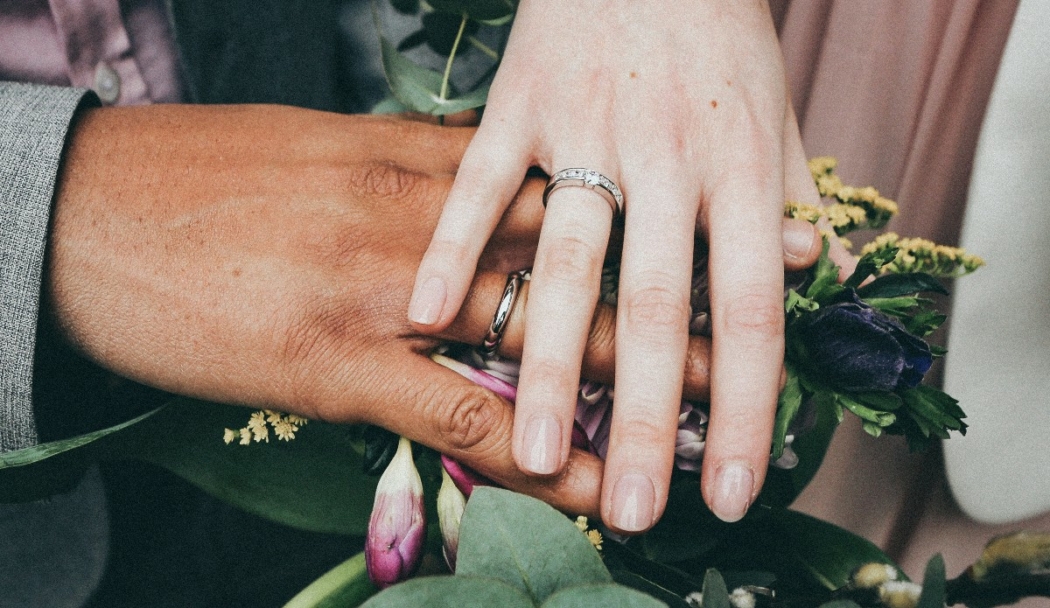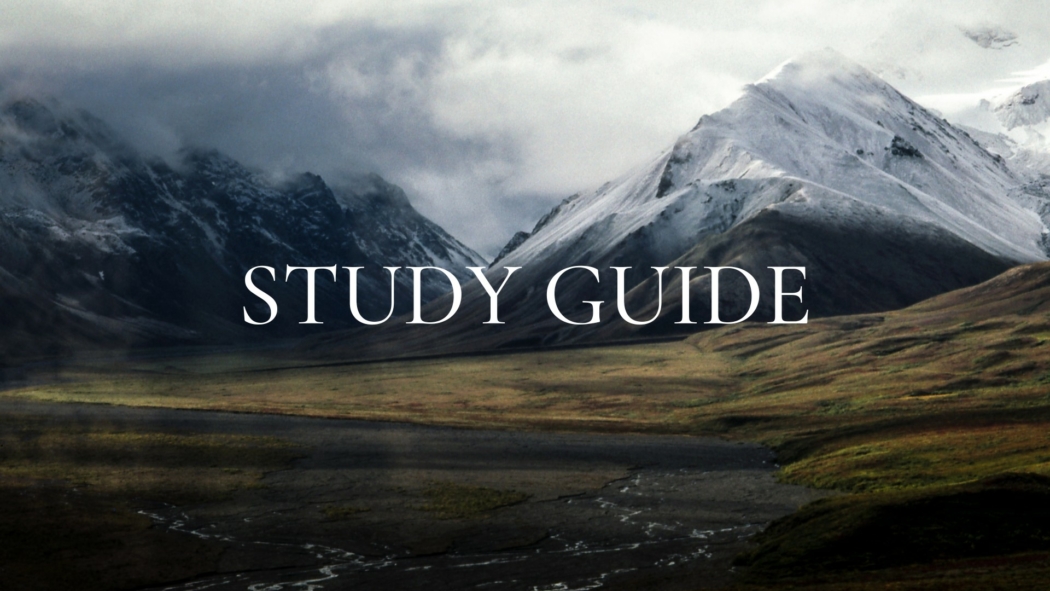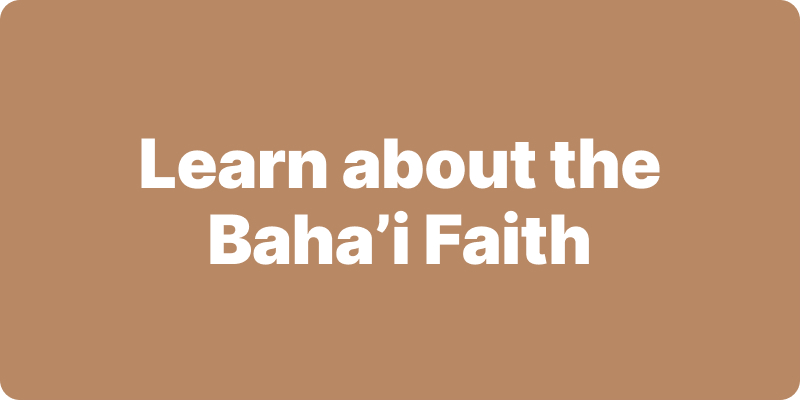In the United States, freedom is highly coveted and when it becomes threatened, freedom is fiercely defended. The first amendment of the Constitution promises to protect these freedoms, guarantees that the American people have the basic right to things like free speech, free press and the right to assemble. Other countries may not emphasise these rights in the same way, but people the world over want the freedom to be themselves and to be free from oppression and prejudice. Indeed, a world without those troubles would be a liberated one. However, are there other ways to think about freedom?
Abdu’l-Baha was imprisoned for 40 years but He stated,
To have been lodged in this faraway prison is for me exceeding joy…. This prison is my supernal paradise; it is my cherished goal… Rejoice in my bondage, O ye friends of God, for it soweth the seeds of freedom.[1]
The Writings already introduce a view on freedom that stands in contrast to common thinking. For most people, imprisonment is the opposite of freedom and yet in that condition Abdu’l-Baha was still exceedingly glad. Perhaps this is a comment that true freedom is more than a physical state of being free but rather an attitude or spirit. For Abdu’l-Baha, nothing was more rewarding than service, and what’s greater than facing trials in the path of God.
This multi-faceted concept goes deeper. When it come to fleshing out an idea, sometimes it’s helpful to think about something in terms of what it isn’t. In society there is great emphasis on the total freedom of individuals; however, Baha’u’llah’s Revelation speaks of the necessity of moderation, which cannot be upheld in a state of absolutes. True freedom, then, is not catering to your every whim. Abdu’l-Baha verifies that acting moderately brings about the well-being of society,
the moderate freedom which guarantees the welfare of the world of mankind and maintains and preserves the universal relationships, is found in its fullest power and extension in the teachings of Baha’u’llah.[2]
If moderate freedom guarantees the welfare of society, what is absolute freedom? That type of freedom is contained in the world of nature. The Writings say that the animal is the embodiment of liberty. Comparison can be made to the bird that is free to soar upon the wind. Directed by the whims of its desires, it goes where it pleases. That is the nature of the bird.
If people were free to do the same, it’s clear that society would quickly fall into disarray. It’s too easy to be self-indulgent or to take things into extremes. For example, leisure is necessary in order to relax and rejuvenate but if we only focused on relaxation then nothing would get done (including this article that I’m writing!). Liberty is the most constructive, the most useful when there are boundaries.
Man, unlike animals, has been endowed with a rational mind and has the free will to choose his own direction. Humanity is special because it has the distinct ability to rise above its condition. Abdul-Baha says,
through the Ideal Power he should be free and emancipated from the captivity of the world of nature; for as long as man is captive to nature he is a ferocious animal,[3]
and again,
the animal creation is captive to matter, God has given freedom to man. The animal cannot escape the law of nature, whereas man can control it, for he, containing nature, can rise above it.[4]
These words affirm that although we may witness the cruelties that are a result of poor choices, man has the God-given freedom to choose another direction, however difficult it may be.
Aside from trying to stay away from extremes, another aspect of freedom that is mentioned in the above quote, is not being captive to matter or the physical. These are the material comforts, the basic desires of the body. There are a number of places where the Writings tell us to turn away from getting caught up in the desire for riches and to free our hearts from the material things of the world. This doesn’t mean that we shouldn’t have anything to do with the world or that it’s bad to want luxury, but that we shouldn’t be overly concerned about whether it’s given to us or taken away. Like Abdu’l-Baha, He had His material possesses taken away and His physical freedom as well, but He was still joyful because His troubles were in the name of God.
Humanity has been called to break free from the bondage of nature in order to develop and progress. In the Kitáb-i-Aqdas, Baha’u’llah makes the conditions clear,
True liberty consisteth in man’s submission unto my commandments.[5]
This is where things continue to get interesting. Isn’t submission the opposite of freedom? Well, think of it this way. In civil society, laws are created to help ensure the freedom of its citizens; and in this vein, institutions have been established in order to enforce these laws. Baha’u’llah’s Revelation has outlined a similar purpose. His Laws have been created in order to guide humanity and keep it safe so that it can be transformed.
If Baha’u’llah’s laws are applicable to all aspects of society, including our conduct, you may be wondering how freedom of expression is treated. The Writings do acknowledge the importance of being able to freely express oneself. One arena is in Baha’i consultation. Instead of making a decision based off of one idea, people are encouraged to consult with others. Those involved have the freedom to say what is on their minds (ideally in a frank and loving manner). The person can then get different sides of the matter and make a more informed decision. We can probably think of a time when we had tried to discuss something with other people, only to find that it’s more like others were trying to prove their opinion is correct, rather than engaging in a real sharing of ideas. In order for speech to be influential it needs to exhibit certain characteristics, so that it’s frank, but kind and loving. Where there is freedom of expression, boundaries are necessary to help it flourish.
Freedom and liberty have an important place in society. In general, the type of freedom that seeks to keep oppression and injustice at bay should continue to be fought for; however, other popular ideas of freedom can be viewed in a whole new way when examined in light of Baha’u’llah’s Revelation.
[1] Selections for the Writing of Abdu’l-Baha, no. 199
[2] Ibid., no. 227
[3] Ibid.
[4] Paris Talks “The Universal Love”
[5] The Kitab-i-Aqdas, para. 125
Posted by
Erin is an American living Down Under. Her interests include reading on public transportation, volunteering, and sketching.








































Completamente de acuerdo, la libertad es una actitud de conciencia espiritual. Además, es relativa, la única es “La verdadera libertad consisteth en la sumisión del hombre a mis mandamientos.” como indico Baha’u’llah
(Completely agree, freedom is an attitude of spiritual awareness. Furthermore, on the soul is “True freedom consisteth in man’s submission unto My commandments.” As indicated Baha’u’llah)
Gabriel Rodriguez G. (June 6, 2013 at 8:47 PM)
The academic study of philosophy began, for me, nearly fifty years ago in September 1963 at McMaster university in Ontario Canada when I was 19. Although my mother and my maternal grandfather were both strongly inclined philosophically, the formal study of the subject did not begin for me until that fall in 1963 at this university in Hamilton. This was just two months before the assassination of President JFK.
Philosophy is the study of a certain kind of general and fundamental problem. Fundamental problems such as those connected with freedom and determinism, existence and knowledge, values and reason, attitudes and beliefs, mind and language, inter alia. Philosophy is distinguished from other ways of addressing such problems by: (i) its critical and generally systematic approach as well as (ii) its reliance on rational argument.
The word “philosophy” comes from the Greek philosophia which literally means “love of wisdom”. There are several major branches of philosophy. It has a long history, and many main theoretical perspectives. For those who would like to extend their thinking beyond this essay on the subject of freedom at Baha’i Blog, you might like to savor some of my work, my many posts and threads, on: ancient, medieval and modern philosophy—to some extent in a Baha’i framework—at this link at my website: http://www.ronpriceepoch.com/PHILOSOPHY.html
RonPrice (June 6, 2013 at 1:13 AM)
It’s no mean feat being en route as the most famous and i m o most brilliant and articulate living atheist while happily ensconced at the University of London as an acclaimed author and as a much sought after public speaker come interviewee. Professor A.C. Grayling’s superb work
“Toward The Light of Liberty” subtitled “The Struggles For Freedom And Rights That Made The Modern Western World” is a must for Baha’i scholars in that its historical underpinning is copiously annotated as befits an English professor of philosophy and it’s only the Baha’is who possess knowledge to counter in this cynical and sceptical age the absurdity of atheism and certain claims for more freedoms – more politely and more scholarly than my pen’s custom, of course.
It’s not that we Bahá’ís see ourselves superior to Christians, Muslims and others when proving the existence of God but rather that the Founders of their traditions hardly elaborated on the subject because the existence of God(s) was pretty much a universal given during former dispensations. Moreover, those earlier Messengers of God, left the matter largely to the Lord of the Vineyard, the Glory of God, prophesied to appear at the dawn of our technological age, initiated by Samuel Morse in 1844: “I have yet many things to say unto you, but ye cannot bear them now. Howbeit when he, the Spirit of truth is come, he will guide you into all truth.” Jesus Christ, (John 16:12)
As a river of fire Baha’i scholars will have to face Grayling because much is at stake vis-à-vis his notions on freedom, free will and God’s so called non involvement in human kind’s acquiring of rights and liberty. Baha-u-llah says:
“Liberty must, in the end, lead to sedition, whose flames none can quench.”
For his part, Grayling (and his ever increasing non believing ilk) must needs take on some one his own size, if only for the sake of his soul and his legacy
Paul Desailly (June 6, 2013 at 3:54 AM)
Interesting comments so far. There is definitely a plethora of literature out there about freedom and all its forms. I’m sure our understanding of the concept will keep evolving as we continue to think about the implications it has for our lives.
Erin Mauger (June 6, 2013 at 7:34 AM)
As I see it freedom also means respect for others. It is wonderful to have freedom but it comes with responsibilities. Inorder for me to have freedom I must be willing to not overstep the bounds of respect for others.
So even if I have this freedom I am always considering the other person/s around me. And I feel this respect which has rules and guides best comes from God. If I am a believer of God and respect those laws that God has given me I will always consider those laws and therefor show respect to my fellow servants. Therefor I can have freedom and respect my Creator and creation.
Thank you
Ruth
Ruth (June 6, 2013 at 8:46 PM)
Those are good points, Ruth. Acknowledging that life is more than looking after our own interests means that respect for others plays a big part in that. If our freedoms are God-given, then it would make sense to exercise those rights in a way that would be pleasing unto Him.
Erin Mauger (June 6, 2013 at 2:31 PM)
Excellent article Erin!
Giving a talk on this topic tomorrow and grateful for your thoughts and insights!
Bryan (July 7, 2018 at 3:04 AM)